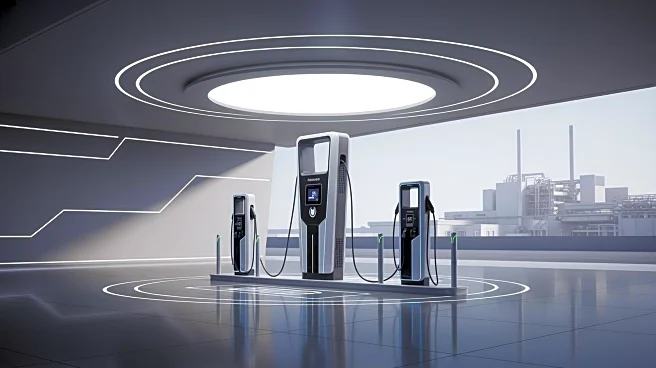What's Happening?
China's automotive market is undergoing significant changes, challenging global manufacturers to adapt their strategies. A survey conducted by McKinsey reveals that Chinese consumers are increasingly favoring
innovation over price cuts in the electric vehicle (EV) sector. Despite rising discount rates in both internal combustion engine and EV markets, the net stimulus effect on consumer demand remains minimal. Instead, accelerated product development cycles are generating a much higher stimulus effect, particularly among higher-income consumers. This shift suggests that flexible production systems capable of rapid model changeovers and technology integration will deliver better returns than those focused solely on cost reduction.
Why It's Important?
The shift in consumer preferences in China has profound implications for U.S. manufacturers. As the world's largest automotive market, China's trends are likely to influence global demand patterns. U.S. manufacturers may need to reevaluate their production strategies to focus more on innovation and technology integration rather than traditional cost-cutting measures. This could lead to increased investment in advanced battery technologies, autonomous driving systems, and smart cabin features. The ability to quickly bring new features to market is becoming a more valuable capability, potentially affecting the competitive landscape and manufacturing priorities in the U.S.
What's Next?
Manufacturers in the U.S. may need to adapt their production capabilities to accommodate the growing appeal for plug-in hybrid and extended-range EVs, as indicated by the survey. This dual-powertrain approach requires different production capabilities than pure BEV manufacturing, particularly in managing complexity across battery, motor, and ICE systems. As Chinese consumer preferences spread globally, U.S. manufacturers might need to optimize their production systems for rapid technology iteration and feature democratization across price segments.
Beyond the Headlines
The survey highlights a democratization of advanced features such as autonomous driving, which is reshaping differentiation in the automotive market. This trend suggests that advanced technology integration must extend deep into volume segments rather than remaining exclusive to premium lines. U.S. manufacturers may need to ensure their systems can incorporate sophisticated features across price ranges while maintaining cost discipline, potentially leading to long-term shifts in manufacturing priorities and consumer expectations.








